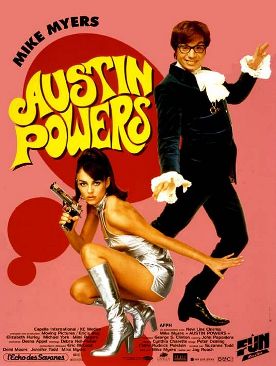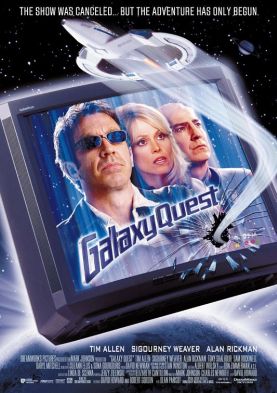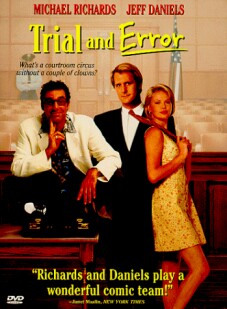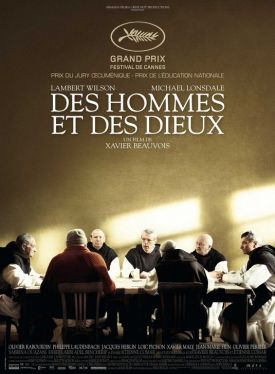Austin Powers, International Man of Mystery
Austin Powers, International Man of Mystery, directed by Jay Roach from a screenplay by Mike Myers, stars Myers as one of those swinging secret agents from the 1960s—though he is supposed to be British he resembles Matt Helm more than James Bond—frozen for 30 years and reanimated, along with his mod get-up, his bad teeth and his primitive attitudes towards women in the placid and politically correct 1990s. When told that “You’ll find that things have changed since the 60s,” he replies that as long as there is still promiscuous unprotected sex with multiple partners and experimentation with a variety of mind-expanding drugs, he doesn’t mind.
It is a clever idea with some considerable potential for satirical comment, but not enough is done with it. Instead, the film quickly decends into the broad but not always very funny comedy of its preposterous plot. Myers also plays Dr Evil, Powers’s nemesis, who was also frozen in 1967 and now has returned to hold the world to ransom for $1 million. When his evil henchmen, especially his Number Two—who is called Number Two—(Robert Wagner) point out that this is not really a lot of money in 1997, he quickly ups his demand to $100 billion.
The plot, as Myers assumes you will guess, is foiled by Powers and his attractive assistant, Vanessa Kensington (Elizabeth Hurley), to whom he is forever making sexist and harassing remarks which would have seemed normal in the 60s but now are in shockingly bad taste. She, however, is unable to react except as the representative of 90s social convention, so that the irony of her character is that her personality and intellect are quite as uninteresting as those of any 60s-era dolly-bird. When she and the boorish Powers get together in the end (as we know they must) it is not because either of them has learned anything to take them out of their time but because they were a match from the beginning.
Another missed opportunity arises in the form of Dr. Evil’s relationship with his son, artificially conceived after he was frozen, with whom he makes sporadic attempts to establish a relationship. The boy, who is full of anger at his father for not “being there,” makes his father attend a group therapy session, conducted by Carrie Fisher, which is probably the funniest thing in the film. But it is not followed up, except when Powers takes the boy hostage, and Dr Evil invites him to go ahead and kill him. “But Dad,” whines his son, “we just had a breakthrough in group.”
Myers finally gets around to his point toward the end, when Powers and Dr. Evil have an argument. The free love and the swinging and the parties of the 1960s were innocent, but now they are evil. “Freedom failed,” says Dr. Evil.
No, replies Powers, though they might now do things (especially sexual things) differently, nevertheless the purpose of winning freedom remained valid. And now it is simply joined to a greater sense of responsibility. So in effect, he concludes, we have the best of both worlds.
Want to bet?
Discover more from James Bowman
Subscribe to get the latest posts to your email.







